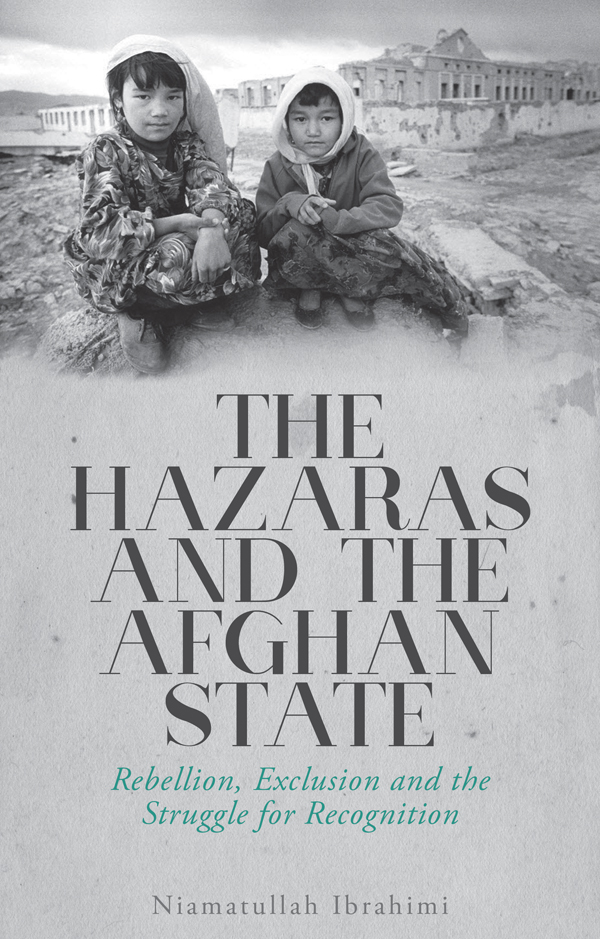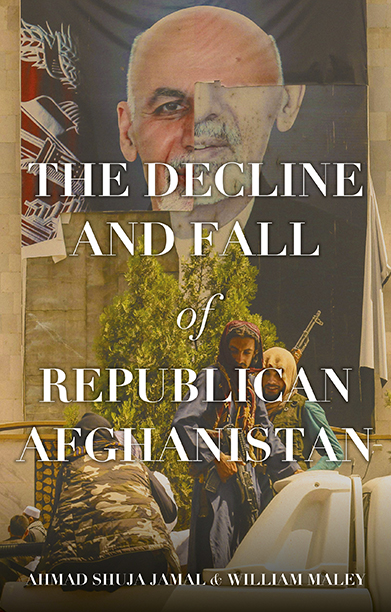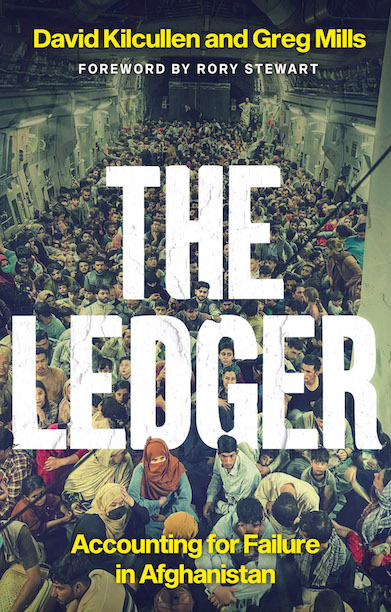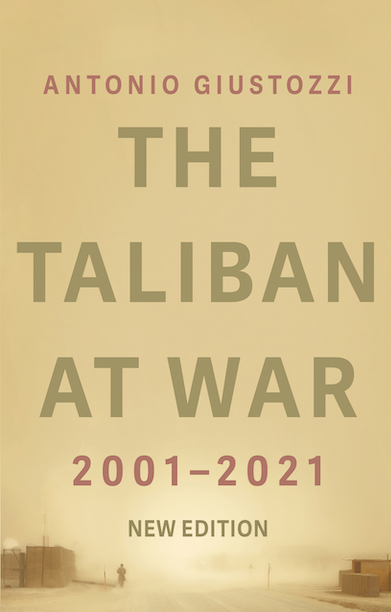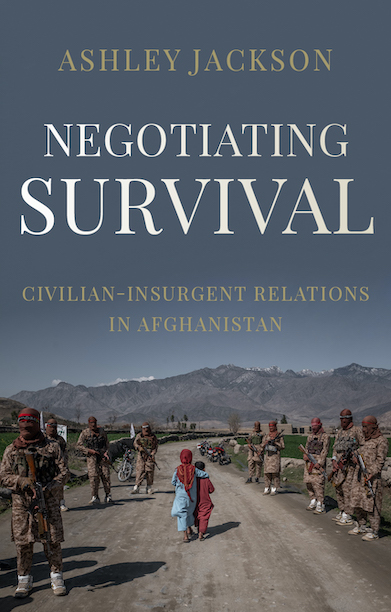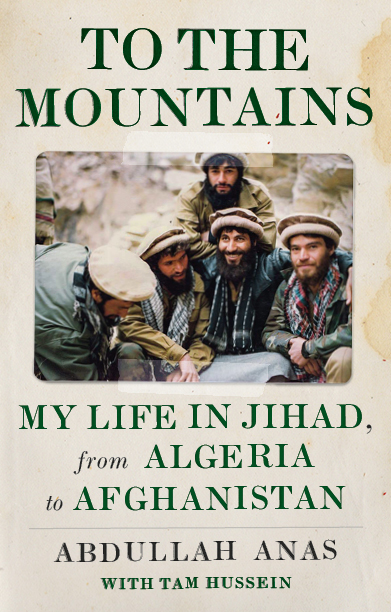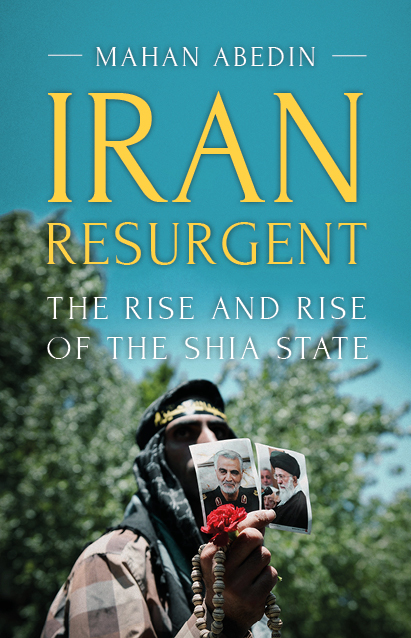The Hazaras and the Afghan State
Rebellion, Exclusion and the Struggle for Recognition
The Hazaras have for centuries faced persecution from Afghanistan’s majority Sunni population — politically, socially and economically. This book examines how and why.
Description
The Hazaras of Afghanistan have borne the brunt of many of the destructive forces unleashed by the establishment of the Afghan monarchy in 1747. The history of their relationship with the Afghan state has been punctuated by frequent episodes of ethnic cleansing, mass dispossession, forced displacement, enslavement and social and economic exclusion. Mostly Shia in a country dominated by Sunni Muslims, and identifiable because of their Asian features, the Hazaras became Afghanistan’s internal ‘Other’. They look different and practise a different school of Islam in a country that is prone to internal conflict and the machinations of external powers. The history of the Hazaras therefore offers a unique perspective into the deep contradictions of Afghanistan as a modern state, and how its ethnic and religious dynamics continue to undermine the post-2001 political process.
This volume provides a fresh account of both the strategies and tactics of the Afghan state and how the Hazaras have responded to them, focusing on three key phenomena: Hazara rebellion and resistance to the intrusion of the Afghan state in the nineteenth century; the incorporation of the Hazara homeland into Afghanistan in the 1890s and their subsequent marginalisation and exclusion; and the Hazaras’ ethnic mobilisation and struggle for recognition in recent decades.
Table of contents
Introduction: The Modern State, Wars, and Ethnic Politics in Afghanistan
- From the Durrani Empire to the Kingdom of Kabul: Ethnic and Tribal Politics in Transition from Empire to Statehood
- State-Building, Violence and Rebellions: The Period of Amir Abdur Rahman Khan, 1880-1901
- The Afghan State and the Hazaras from 1901 to 1978:Afghan Nationalism and Policies and Politics of Modernisation and Exclusion
- The Rise and Fall of a Clerical Proto-state: Hazarajat 1979-1984
- At the Sources of Factionalism and Civil War in Hazarajat: 1981-1989
- The Shift from Internal Wars of Domination to National Struggles for Recognition: Hazaras and Ethnicisation of Politics and War in 1990s
- International Intervention, Statebuilding and Ethnic Politics, 2001-2016
Reviews
‘Ibrahimi’s impressively detailed history helps us to make sense of the current political situation in Afghanistan … throughout the book Ibrahimi adopts a healthy critical stance towards essentialist theories of ethnicity. He aptly shows that to get a full picture of Afghan politics it is necessary to both zoom out to the global and transnational level, and zoom in below the provincial level.’ — The Times Literary Supplement
‘In this this sympathetic but nonpolemic book . . . Ibrahimi has undertaken field and archival research to trace the efforts of the Hazaras to protect their identity and patrimony and to find a legitimate place in the Afghan state.’ – Foreign Affairs
‘An excellent forensic survey.’ — Asian Affairs
‘Niamatullah Ibrahimi’s richly-textured account of Hazaras’ relations with the Afghan state not only sheds light on the social and political complexities of a highly-vulnerable group; it also illuminates dimensions of the state building enterprise in Afghanistan in ways that highlight the challenges of internationally-supported state building more broadly. A pathbreaking book.’ — William Maley, Professor of Diplomacy in the Asia-Pacific College of Diplomacy at the Australian National University; author of What is a Refugee? and Reconstructing Afghanistan: Civil-Military Experiences in Comparative Perspective
‘A work of great interest, which skilfully examines the link between nation-state formation since the late nineteenth century and the politicisation of ethnic identities. Focusing on the case of the Hazaras, Ibrahimi demonstrates how ethnicity, far from being a primordial form of social organisation, became an idiom of political mobilisation.’ — Alessandro Monsutti, Graduate Institute of International and Development Studies, Geneva; author of War and Migration: Social Networks and Economic Strategies of the Hazaras of Afghanistan
‘Ibrahimi vividly relates the history of the long persecuted Hazara minority, unravelling their relations with the Afghan state for over two centuries, their complex internal political rivalries, the role of foreign interventions, and their recent successes in an on-going struggle for recognition. It is a bloody, tragic, but often inspiring story.’ — Richard Tapper, Emeritus Professor of Anthropology in the University of London
‘Ibrahimi evaluates the costs in the creation of modern nation-states in multiethnic societies by narrating the sufferings of one group, the Hazaras, in the making of Afghanistan. A must-read for political analysts, policy makers and those wishing to understand why failed multiethnic nation-states provoke politics of rage and extremism in the region.’ — Nazif M. Shahrani, Professor of Anthropology, Central Asian and Middle Eastern Studies, Indiana University
Author(s)
Dr. Niamatullah Ibrahimi is a Lecturer in International Relations at La Trobe University in Melbourne. He completed his PhD in 2018 at the Australian National University and has published extensively on Afghanistan’s politics and history. He is also the co-author (with Professor William Maley) of ‘Afghanistan: Politics and Economics in a Globalising State’.
